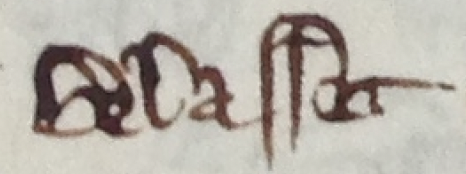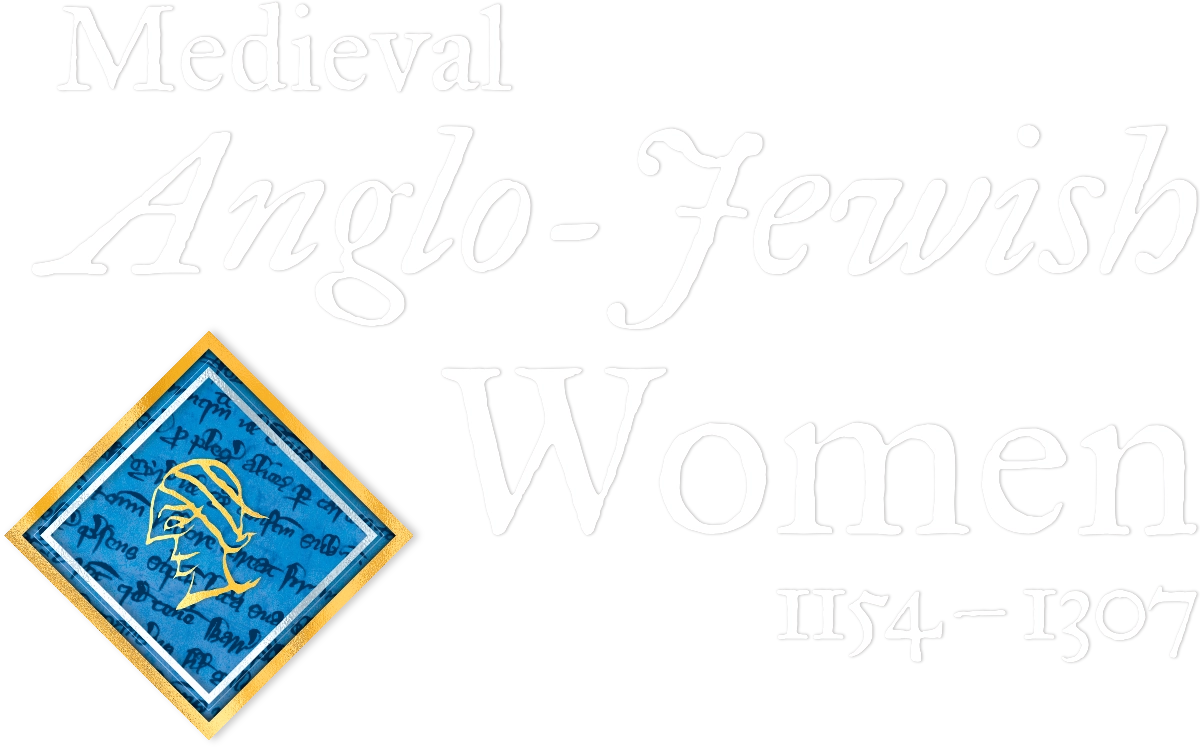Belaset wife of Solomon of Alcester
Referred to in records as: “Belasez”, “Belasez of Oxford”, “Belassez”, “Belassez Oxonie”.
Traits
- Convert to Christianity
Brief biography

In early summer of 1280, shortly after her husband Solomon son of Jacob of Alcester died, Belaset of Oxford converted to Christianity. Her husband had been condemned
in the coin-clipping crisis of the late 1270s, when many English Jews were imprisoned
and executed for allegedly trimming metal from the outer edges of coins to illegally
mint new ones or sell the metal. After Solomon’s death, King Edward I tried to collect
on one of his debts: John le Engleys of Warwick owed Solomon 20s., which now would
belong to the king, but John was able to produce a starr confirming that he had repaid
the debt before Solomon’s execution. The king’s failed attempt to collect this debt
reveals that Belaset’s husband—and therefore Belaset herself—did reside in Alcester
in Warwickshire, from where half of the convened jury was called (in part to verify
that the starr in question showed Solomon’s hand). That Belaset converted in Oxford
and was later called
of Oxford,however, suggests that she was originally from Oxford and returned there, to her unmarried sister Hittecote, after her husband’s demise.
Belaset’s conversion is of special interest. She and her sister seem (very unusually)
to have kept their names after conversion; they converted together with a woman called
Floria Tapay, possibly another relation and also a recent widow (likely for the same reason that
Belaset was); and she and her sister Hittecote’s belongings included a valuable collection
of books in Latin. The women first appear in two records that order a mixed jury of
Christian and Jews to assess the pre-conversion value of their chattels (the first
appointed jury were deemed unfit and the Oxford sheriff then had to find
wealthier and more distinguishedoptions).
The valuation must have been complete by spring 1281 (when the king also tried to
collect on Solomon’s bond). By then, Belaset and Hittecote were living in the London
Domus Conversorum (House of Converts), an institution for Jewish converts to Christianity established
by Henry III in 1232 on what is now Chancery Lane. At that time, the warden of the
house complained that the women urgently needed their property, or at least the assessed
value of it, for their maintenance, and asked that it be released immediately. This
was granted (the warden produced a writ from the king making it so), and the Justices
of the Jews delivered to the Domus nine Latin books belonging to the sisters, all concerning natural philosophy, grammar,
and civil law—together worth nearly £3, along with 10s. as the value of their clothing.
These facts tell us much about their pre-conversion life: first, they were involved
in the book trade—they likely held books in pledge for loans—and the number and kind
of books suggest business with Oxford scholars; second, a group of women converting
together is notable. It suggests that women might embrace such a change together,
particularly if widowhood and collective loss left few other options.
Further reading
- Fogle, Lauren, The King’s Converts: Conversion in Medieval London. Lexington Books. 2019.
- Hillaby, J. and C. Hillaby, The Palgrave Dictionary of Medieval Anglo-Jewish History. London: Palgrave. 2015, s.v. Coinage and Coin-Clipping Crises, 1238–47 and 1276–79, pp. 104–09.
- Rokéah, Zefira Entin, Money and the Hangman in Late-13th-Century England: Jews, Christians and Coinage Offenses Alleged and Real (Part II), Jewish Historical Studies 32 (1990-1992): 159–218.
- Williams Boyarin, Adrienne, The Christian Jew and the Unmarked Jewess: The Polemics of Sameness in Medieval English Anti-Judaism. The Middle Ages Series. University of Pennsylvania Press. 2021, pp. 121–123.
Dates mentioned in records
1280–1281
Locations
Oxfordshire, London

